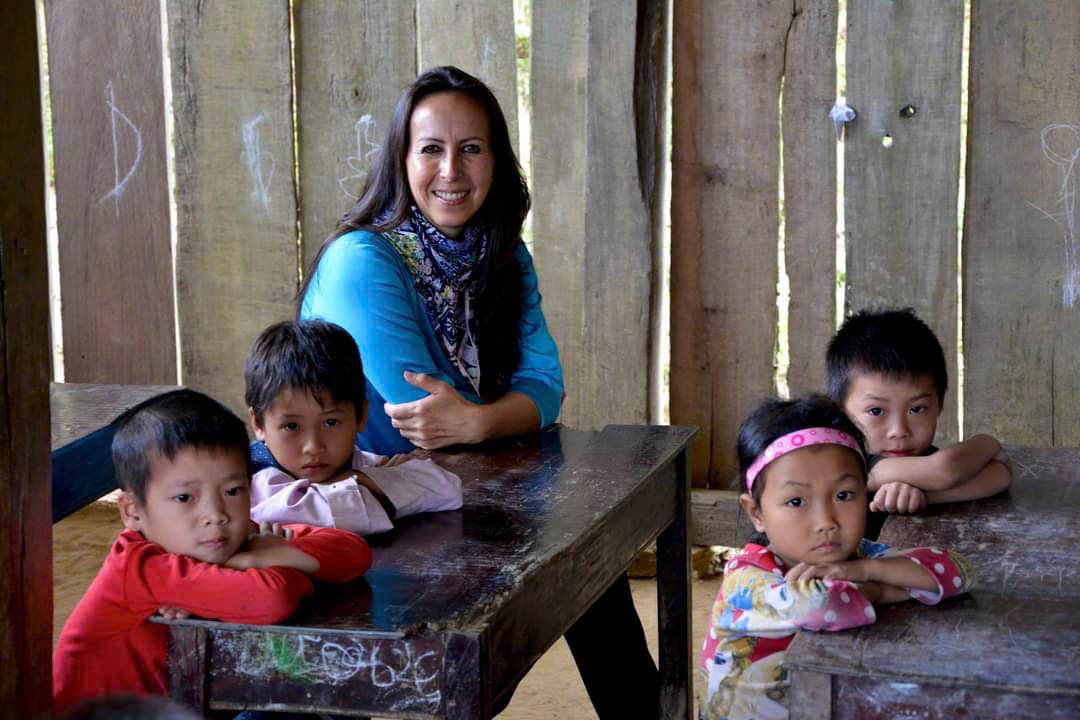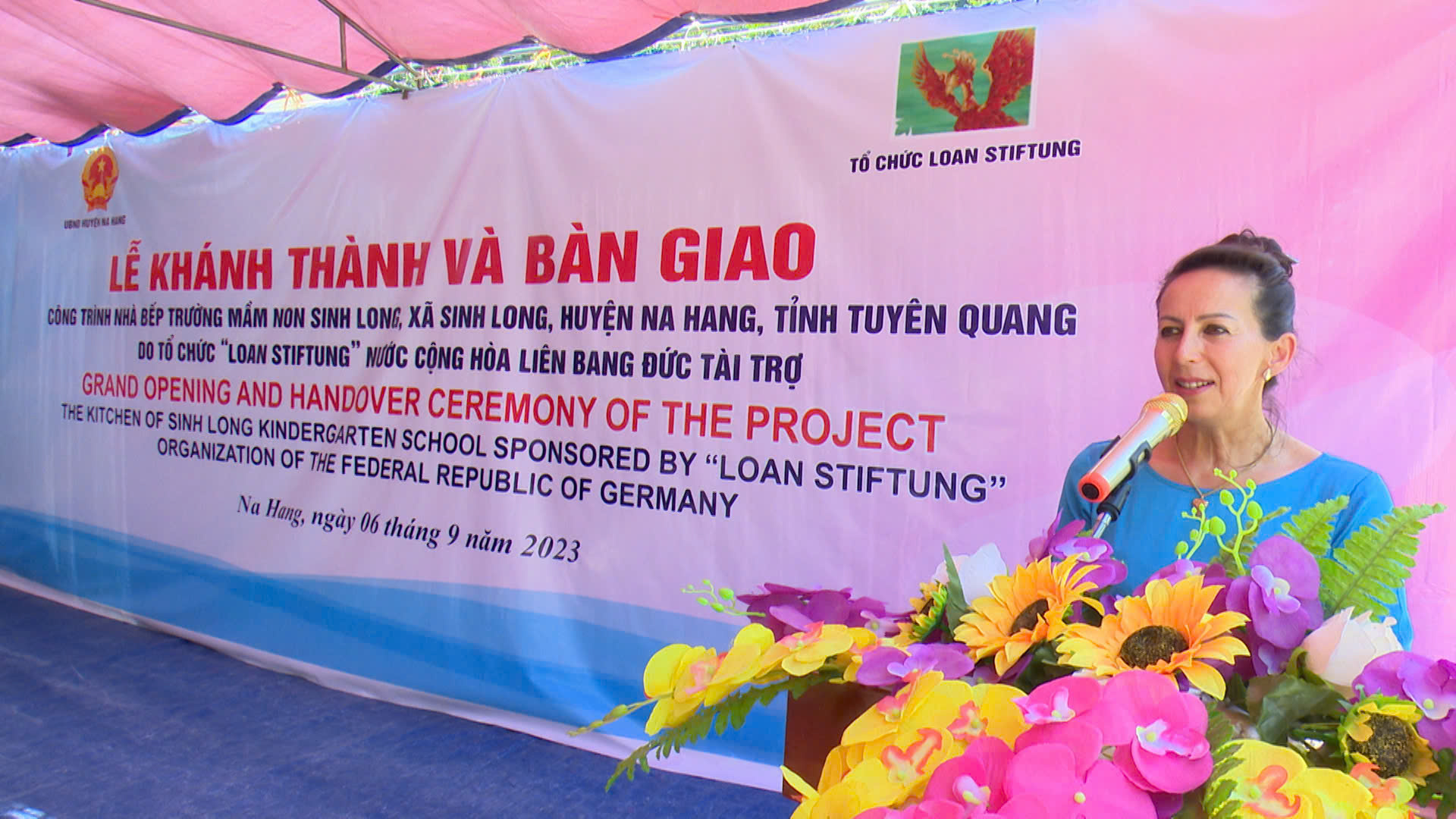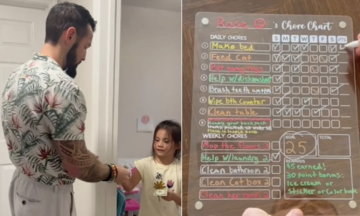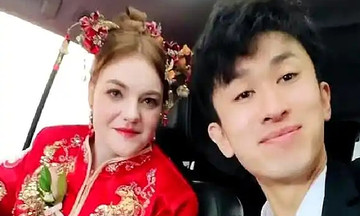French-Vietnamese Isabelle clutched her mother, Dau Thi Cuc (commonly known as Loan)'s hand as they descended from the plane at Noi Bai Airport, Hanoi. No one was there to greet them. Her mother's homeland "welcomed" her with sweltering heat and noise. "But deep down, I still felt something familiar," Isabelle Paulette Müller, 61, recounted her feelings upon first setting foot in Vietnam in the summer of 1990.
At the airport, as the immigration officer looked through her passport, stamped her tourist visa, and returned it through the window, Isabelle suddenly felt a sense of disappointment. The stamp was a reminder that she was merely a tourist, standing outside the door of her homeland.
However, the feeling of being a "guest" quickly dissipated when Isabelle enjoyed a hot bowl of pho at the hotel. The rising steam, fragrant with cinnamon and star anise, brought her back to the stories her mother used to tell in France. "If you feel like it tastes like home, then we are home," Loan said.
From that moment, Vietnam came alive and opened up a journey for her to rediscover and repay her homeland.
 |
Isabelle Müller in a classroom in Ha Giang in 2024. Photo courtesy of the subject |
Isabelle Müller in a classroom in Ha Giang in 2024. Photo courtesy of the subject
Isabelle was born in 1964 in a small village near Tours, in central France. She is the youngest of 5 siblings. Her mother, a woman from Ha Tinh, left Vietnam in 1955 with her father, a former French soldier who fought in Indochina and was discharged with psychological trauma.
They struggled with poverty. Her mother bore the economic burden and endured the judgmental gazes of their neighbors.
"I was marginalized from French society, living in the shadows of isolation and discrimination," Isabelle recalled. School was her only social interaction, but it wasn't enough to soothe the pain of a daughter abused by her father for 9 years. Finding no escape other than submission and silence, Isabelle attempted suicide twice, at 13 and 17.
After graduating from university, she moved to Germany to work as a translator and met her husband, a technology entrepreneur. This was also the time when Isabelle saved enough money to return to Vietnam with her mother for the first time. Her desire to explore her roots stemmed from her mother's stories. Above all, she wanted to see if Vietnamese people were like her mother, who grew up with many challenges but remained resilient.
During that trip home, she and her mother reunited with Uncle Le, Loan's younger brother. It was the first time she saw a house with a thatched roof and lush green rice paddies. A cousin picked a pineapple for her to eat, and when she was thirsty, they climbed a coconut tree to get fresh coconut water.
"The warmth made me feel like this was where I belonged," she said. "Step by step, I felt a growing love for this country."
In 2003, Loan passed away, leaving behind the wish to "build many schools for poor Vietnamese children." Isabelle promised to fulfill this wish for her.
"She wanted to bring equal educational opportunities to children," Isabelle said. At the same time, she wanted to do something to show her gratitude to Vietnam, the place that gave her the love to heal her dark childhood.
In 5/2016, having secured sufficient funds, Isabelle established the Loan Foundation. After 9 years of operation, the Foundation has implemented over 48 projects, including providing scholarships for poor students and orphans, building semi-boarding houses and kitchens, and supporting disaster relief. The funding comes from individual donations, international organizations in Europe and Vietnam, and royalties from her published works.
"I don't want children to see me as a wealthy 'Western lady' who just gives them money," she said. "My efforts will be meaningless if these children don't recognize the value of education."
 |
Isabelle Müller at the handover ceremony of a kindergarten in Na Hang district, Tuyen Quang, 9/2023. Photo courtesy of the subject |
Isabelle Müller at the handover ceremony of a kindergarten in Na Hang district, Tuyen Quang, 9/2023. Photo courtesy of the subject
On several trips to the highlands, Isabelle encountered children who begged for money, asking for 5 USD each time she took a photo with them. She was heartbroken and realized that financial aid or scholarships alone were not enough to create lasting change. Tradition, family, and social structures often lead children to drop out of school or marry early.
Four times a year, she flies back to Vietnam to participate in awareness-raising classes, counseling, and conversations, helping children develop their willpower and shape their future. She herself is inspired by the teachers who trek through forests and muddy roads, their wheels stuck in the mud and rocks, to reach their schools.
They are beginning to reap the first rewards, like Ma Thuy Thuy, born into a poor farming family. Her parents once forced Thuy to quit school to work in the fields, causing her to run away from home and take a bus to Hanoi. Eventually, thanks to the Loan Foundation, she was admitted to the East Asia University of Technology to study food technology.
Sung Thi My, 22, was born and raised in the Dong Van Karst Plateau Geopark, Ha Giang. Four years ago, she faced the dilemma of continuing her education or dropping out due to poverty. Isabelle reached out to her when she was in 12th grade at the Ha Giang Boarding School for Ethnic Minority Students and encouraged her.
"It was like finding light at the end of a dark tunnel," My said. Currently, My is working part-time at a hotel in the Old Quarter and preparing to graduate from the Hanoi University of Business and Technology in 2026.
Vu Yen, Isabelle's colleague at the Loan Foundation, praised her dedication to children in the mountainous regions of northern Vietnam. For each school construction project, Isabelle travels over 10,000 km from Germany and conducts on-site surveys, even in remote and precarious locations, halfway up mountains, and deep in the countryside. When the roads are slippery and cars cannot pass, she and her team travel by motorbike and on foot. For children in difficult circumstances, Isabelle visits their homes to listen to their stories and gain a deep understanding of their situations.
"I'm impressed with her view that children are a piece of the puzzle that helps shape the world," she said.
Ngoc Ngan












